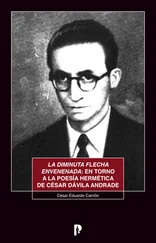Unfortunately, right at that moment, the phone in his pocket, which had been ominously quiet for a while, rang. To make matters worse, it took him a while to find it and silence it, what with the state of his nerves; he looked through all his pockets before looking in the right one. When he finally had it in hand, he answered the call. Precautions were no longer worth taking, and the company of a voice was preferable to nothing.
It was a man calling from Primary School #7, in the name of the School Association, to tell him that they had decided not to support him in the upcoming elections.
He didn’t manage to ask why. The voice sounded resolute and bitter and not at all friendly, even though it belonged to someone he’d known for years, and on whose electoral loyalty the mayor would have bet his life just hours earlier. With what remained of his political reflexes, he tried to stammer out something about it not being the moment to discuss the election, or that he would continue to serve the people of the town in whatever role he could be most useful, without any personal ambitions, but the other man interrupted him before he began, telling him that all the people of the neighborhood shared the opinion he had just communicated, and probably the whole party did, and that he might as well bid the mayor’s office goodbye. After which, he hung up without saying goodbye.
The first thing the mayor thought was that they were blaming him for what was happening. That was unfair in the extreme but could only be expected. He suspected, however, that there was something else going on. He remembered that Primary School #7 had been one of the first sites affected. The person who called him, it would seem, had been one of the victims, and the ill humor expressed in his voice would be the effect of the loss of endorphins, a loss everybody around him would have suffered, the whole damn School Association, and at this point, the whole town. The first thing that had occurred to them in their new state of mind was to initiate a motion against the mayor. Would this be the end of his career? He’d already won three elections, this would be his fourth — he’d been leading the City for fifteen years — and he always won by a large margin. Neither the long years of laissez-faire, nor suspicions of corruption, nor the increase in taxes had put a dent in his popularity or his well-oiled system of cronyism. And now this, the disappearance of a few insignificant mental drops, was going to spell his doom. Did this mean that his tenure could not be attributed to his skill as helmsman of the administration, to his charisma and connections, but rather to the happiness of the voters? Bad moment to discover this. The door to the wardrobe was already open and a silhouette, both inhuman and human, outlined in black against black, leaned over him. In a split second, in fast forward, there raced through his mind all the public works and urban improvements he owed Pringles.
In the meantime, the hunt continued through the streets, in the houses, on rooftops, and in basements, out in the open and hidden away in the most secret of lairs. Night continued. The moon followed its path across the sky, not rushing anywhere. One of the last reservoirs of blessed living and throbbing material persisted, miraculously, right downtown. It could be found on the top floor of the Teatro Español on Stegmann Street, in a large hall that the Sociedad Española rented for special events. On this occasion, it was for a wedding reception, less elegant than the French one, but just as well attended. The bride was the daughter of a farmer, the sort who breaks the bank in order to impress his new in-laws. They had eaten vast amounts of lamb and suckling pig, and drunk wine like there was no tomorrow. The alarm reached them in good time, and since nobody had yet left, they were all privileged witnesses to the invasion, thanks to their elevated location, and the room’s many balconies. The fact that they hadn’t been attacked could have been due to many reasons, or none, or perhaps they were being saved for dessert. One of the many possible reasons was that they’d fallen between two crowds that had received, early on, a visit from the slurpers of the hereafter: behind them and down below, the moviegoers at the Teatro Español, who were taken by surprise as they left, crowded in the entryway and along the sidewalk; to the side, the hotel guests and the diners at its restaurant. They’d witnessed all of it from the balconies, and they’d had time to prepare themselves. The hall, whose safety arrangements for evacuation would not have passed any kind of inspection, had only one access, a narrow and steep staircase, which would have caused a holocaust in case of fire but was easy to defend. The attempts at invasion by the living dead were repelled by a barrage of bottles thrown from the top of the stairs; they had drunk enough to have an unlimited supply of these projectiles. The attackers had dispersed, and there ensued a long period of tense calm.
Now they were returning, and this time it would be impossible to keep them out. Clearly there was a reflux back toward downtown — they were swarming like storm clouds down Stegmann Street. Even with the bottle pelting and the somersaults and the resulting avalanches created when the bravest attempted hand-to-hand combat, the stairs were soon left unobstructed. The first walking corpses that entered the hall provoked a tumult of shouting and mad dashes that, due to the lack of space, could only result in the tracing of a circle, the classic figure of terror. And even if some might have preferred to leap into the void, they would have been preemptively dissuaded by the doors onto the balconies filling with those inconceivable beings, which they now saw close up and under bright lights. And they kept entering; their sheer numbers rendered defensive attacks futile, for anybody who attacked one was in turn attacked by others. They always won. The worst part was not only that they could see them close up, but since there was no place to escape, they had to watch from close up as they performed their dreadful brain surgery; many people had never thought about having a brain, and now they were seeing them from a few feet away, stripped naked, gouged out and sucked up by a strange tongue, and they even heard the liquid sound of the slurp. Even though they were terrified, they didn’t stop twisting and kicking and ducking. It looked like a dance, with one partner dead and the other alive.
The shouts quieted down little by little. What had begun as a bedlam of shrieks and roars, warnings and pleas for help, slowly drained out into isolated death throes punctuated by silences. And, out of one of the last screams there emerged, unexpectedly, the cure.
An older woman, cowering in a corner at the back of the hall, watched as a slurping corpse — drooling and majestic in its own way — lifted its head up from a child’s open skull and set itself upright on green-splotched tibias with ornate bunches of dried innards hanging down and shaking like the tails of a frock coat, with disconnected remnants of face stuck to its skull, and she saw it look at her, choose her, and take a step toward her.
Then… she recognized it. It came to her from the depth of her being, independent of any mental process; it came to her from the substrata of life in Pringles, from the erudition of many years and a lifelong passionate interest in the lives of others, which in small towns is equivalent to life itself. What came to her was his name.
“Schneider, the Russian!”
It rang out in an interval of silence, then echoed throughout the hall. Some turned to look. The corpse (which was indeed that of the German immigrant Kurt Alfred Schneider, dead for fifteen years), stopped moving, spurned — in an unprecedented gesture — a defenseless prey, turned, and began to walk calmly toward the exit. Next, everything went very fast, as is always fast or even instantaneous the “realization” of something obvious that everybody has thus far ignored.
Читать дальше












